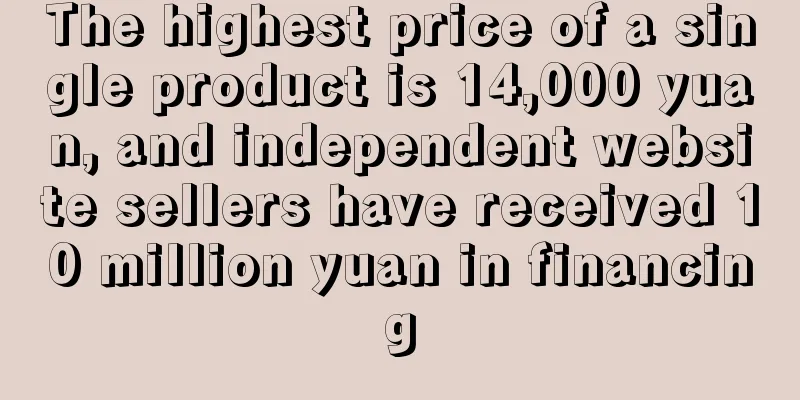What is ProdSG? ProdSG Review, Features

|
On September 23, 2011, the German Bundestag promulgated a revised version of the Equipment and Product Safety Act (GPSG), now known as the Product Safety Act (ProdSG). The German Bundestag passed the bill and announced it in the Federal Law Gazette on November 11, 2011, and the new Product Safety Act (ProdSG) came into effect on December 1, 2011.
About ProdSG The main reason for the introduction of the new regulation ProdSG is to implement the new EU directive EC 765/2008 on the recognition system and market supervision, which was enforced on January 1, 2010. EC 765/2008 Directive stipulates the review and market supervision requirements related to product marketing. In the German Equipment and Product Safety Act, this regulation was in conflict with local laws. Therefore, the German legislature revised the Equipment and Product Safety Act, integrated the regulations related to review and market supervision in EC 765/2008 Directive, and made a lot of supplements to the original GPSG; in addition, the Product Safety Act also adopted the regulations on terminology and other aspects in EC 768/2008 Directive. In general, the new regulations have added some new regulations for market entities such as manufacturers, importers, retailers, GS certification agencies and market supervision agencies, and have stricter regulations on penalties for violations of the law. The Product Safety Law applies to almost all products, except for special areas such as medical devices and food. The law implements many European CE directives into German law. In addition to the areas controlled by the unified directives, the Product Safety Law also stipulates products outside the areas controlled by the unified directives, such as parts and accessories used by merchants for reprocessing.
Excerpts of the main changes in the new regulations 1. New regulations for manufacturers, importers and retailers (1) Manufacturers, agents and importers of consumer products must fulfill the following obligations within the scope of their business in relation to the consumer products they provide: conduct appropriate product inspections; handle relevant complaints and, where necessary, keep relevant complaint records; and instruct retailers to take further action in relation to the consumer products. (2) Retailers must ensure that only safe products are placed on the market. In particular, retailers must not introduce consumer products on the market based on prior information or experience that is contrary to the requirements. (3) When importing products with the GS mark, importers need to verify whether the products have a valid GS certificate and file the corresponding documents, recording the validity date, GS mark issuing authority and certificate number. 2. New regulations on GS certification agencies The new regulations increase the requirements for GS certification bodies and the transparency of issuing and canceling GS certificates. The law requires all GS certification bodies to publish a list of GS certificates that have been issued (white list) and a list of GS certificates that have been revoked (such as abusing the GS mark) (black list). 3. New requirements for market regulators The new regulations increase the requirements for market regulators. Product inspections need to be completed by authorized GS certification agencies or similar qualified agencies; if manufacturers fail to issue product hazard warnings to customers in a timely manner, market regulators will directly inform the public of the relevant product hazards; the sampling guideline for market regulators is 0.5 samples per 1,000 households.
New fines The new regulations have stricter penalties for violations, such as fines for missing German instructions and missing specifications or labels on consumer products, and increased fines to prevent abuse and achieve lasting effects. Violations may result in a fine of 10,000 euros; under certain conditions, if the GS mark is used without a corresponding certificate, the fine will be as high as 100,000 euros. In addition, the penalty provisions will also continue if the GS mark is used or advertised continuously and repeatedly without the corresponding GS certificate. In this case, a fine or one year imprisonment may be imposed according to the penalty provisions of the legislature. |
<<: What is Qi? Qi Review, Features
>>: What is PPC? PPC Review, Features
Recommend
Cross-border e-commerce platform was fined 59 million US dollars for selling goods illegally!
Recently, the well-known cross-border e-commerce ...
What is Samick Trading Co., Ltd.? Samick Trading Co., Ltd. Review, Features
Sanyi Trading Co., Ltd. is a service provider that...
Cainiao Import 200+ European, American and Australian Shipping "Combination Punch": Service Tiers, Price Tiers, Customer Grouping
On September 7 , Cainiao fully upgraded its impor...
Is there a pitfall in selling accounts and “exiting”? Amazon store transactions are fraught with risks
Back in 2020, when most Amazon sellers were still...
What is Jingzhuntong Testing and Certification (Guangdong) Co., Ltd.? Jingzhuntong Testing and Certification (Guangdong) Co., Ltd. Review, Features
Jingzhuntong Testing and Certification (Guangdong)...
Leveraging the 600 million “silver-haired” market, senior citizens are also going crazy for online shopping!
In the seventh national census, the population of...
The first batch of foreign trade factories that joined AliExpress’s full-management service began to receive a surge in orders
In 2023 , with the changes in the global consumpt...
What is Shopee Auction Bulk Upload Assistant (Shopee123)? Shopee Auction Bulk Upload Assistant (Shopee123) Review, Features
Shopee Auction Bulk Upload Assistant (Shopee123) i...
What is Aoji
AUKEY International was established in Hamburg, G...
11-year-old girl suffered severe burns! Temu was criticized for product quality again
Recently, Temu, which is famous for its low price...
Tmall Double 11 saw triple-digit growth in many industry sectors, and small and medium-sized businesses achieved greater certainty of return on investment
Data from Taobao and Tmall show that from 8pm on ...
Bidding candidates are listed! eBay Korea may be sold in May
It is understood that eBay Korea's official l...
Cainiao and Guizhou Xijiu sign strategic agreement to create a new benchmark for "white wine going global"
On December 21, 2023, Cainiao Group and Guizhou X...
What is Amazon Moments? Amazon Moments Review, Features
Amazon Moments is a service program released by A...
Amazon sold itself for 13 million, and all old employees may be fired
Although there seems to be less news about Amazon...









